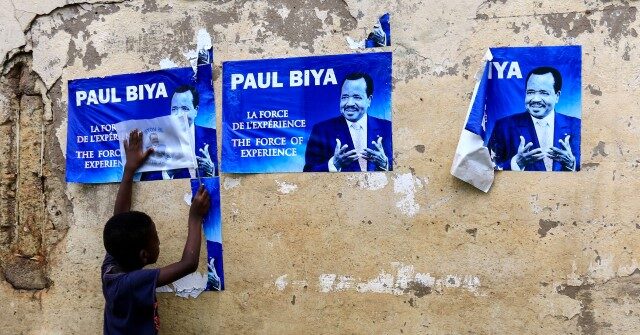Rumors of the death of Paul Biya, Cameroon’s long-serving authoritarian leader, have surfaced, raising alarms regarding the stability of his regime. Although the government has outright denied these reports by asserting that Biya is alive and well in Switzerland, the 91-year-old president has not made a public appearance in over a month, leading to growing concerns and speculation about his health. Biya’s strict control over the political landscape, censorship of media, and repression of dissenting voices have characterized his four-decade rule. Reports from within the country suggest that the regime has prohibited private media from discussing Biya’s health or the rumors surrounding his potential death, further complicating the flow of accurate information to the public and igniting intrigue on the international stage.
Biya was last seen attending the “Sino-African Cooperation Forum” in Beijing on September 8, where he appeared in photos with several prominent African leaders and China’s president Xi Jinping. Following this appearance, Biya retreated to his lavish lodgings in Switzerland, where he often spends time away from Cameroon. His absence from several key events over the past month, notably the United Nations General Assembly, has raised eyebrows and drawn criticism. As his office failed to provide any updates regarding his whereabouts or condition, a wave of dissenting voices emerged, pressing the government to offer clarity on the president’s health and his unusual absence from public life.
The whirlwind of speculation escalated with an explosive claim from an online media outlet known as the Africa Broadcasting Service (ABS), based in Texas. Citing anonymous sources, ABS alleged that after traveling from China to Geneva, Biya was hospitalized and, unable to recover, was flown to France, where he purportedly died. In the wake of this claim, rumors intensified, claiming that Cameroonian special forces had surrounded the presidential palace anticipating a coup attempt should the news become public. This narrative fed into the broader context of dissent against Biya’s regime, particularly among those supporting the Anglophone separatist movement, which has faced intensifying repression under Biya’s rule.
In striking contrast to the incendiary claims from ABS, senior officials in Biya’s government have dismissed the rumor of his death as unfounded. Senior leader Samuel Mvondo Ayolo emphasized that the president’s health is “excellent” and that he remains in Geneva. This assertion was met with skepticism by observers, particularly given the government’s failure to outline a timeline for Biya’s return to public engagements or to provide independent reports confirming his purported presence in Switzerland. Instead, the government opted to label the death rumors as fabrications, describing them as the creation of “mischievous individuals” with ill intentions toward national stability.
Despite the official denials, the tension surrounding Biya’s health situation echoes the circumstances leading to the demise of other authoritarian leaders. A parallel can be drawn to the case of Tanzania’s John Magufuli, whose slow disappearance from public life led to rampant speculation about his health. Reports about Magufuli’s eventual death triggered political turmoil, displaying how unaccountable leadership can destabilize governance structures. Much like Biya, who has ruled with an authoritarian grip, Magufuli’s approach towards governance limited public knowledge and dialogue about critical issues such as health, ultimately leaving the nation in uncertainty as it faced the implications of leadership transition.
The growing doubts about Biya’s health signal a potential turning point for Cameroon, a country grappling with numerous challenges including political unrest, separatist movements, and a suffering economy. Cameroonian citizens have expressed their right to an explanation, demanding transparency from a government that has historically prioritized suppression over accountability. As the international community watches closely, the developments surrounding Biya’s health and governance will likely shape Cameroon’s political landscape for years to come, prompting citizens and stakeholders alike to consider what the future may hold in a nation burdened by decades of authoritarianism, repression, and uncertainty.

